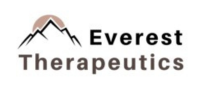Accelerate Healing: Uncovering the Power of Massage Therapy
In the realm of recovery and healing, we’re often advised to rest, consume nutritious foods, and take prescribed medications. Yet, there is a powerful tool frequently overlooked – massage therapy. A time-honored practice rooted in cultures worldwide, massage therapy has found its rightful place in modern health and wellness, particularly here in Canada. While typically associated with relaxation and stress relief, its benefits extend beyond just feeling good. A growing body of evidence supports its effectiveness in accelerating recovery and enhancing overall health. Navigating this healing journey, this article serves as your guide, shedding light on the crucial role of massage therapy in recovery, its science, practical applications, and legal considerations in Canada.
Understanding Massage Therapy
Massage therapy, at its core, involves the manipulation of the body’s soft tissues – muscles, tendons, ligaments, and connective tissues. In Canada, it’s a regulated health profession in several provinces, with therapists undergoing extensive training to deliver safe and effective treatments.
Different Types of Massage Therapies
There are various forms of massage therapies, each designed to address specific health issues, recovery goals, or simply promote overall well-being. These include Swedish massage, deep tissue massage, hot stone massage, and sports massage, to name just a few.
Among these, sports massage is particularly popular for its ability to speed up recovery. Athletes frequently incorporate it into their training regimen to prevent injuries, enhance performance, and promote quicker recovery from strenuous workouts. While it’s especially beneficial for sports enthusiasts, it’s certainly not limited to them. Regardless of physical activity level, anyone can benefit from the healing effects of massage therapy, making it a universally applicable approach to wellness and recovery.
Exploring these types of therapies and understanding their benefits are the first steps in harnessing their power for healing. And in Canada, with its rich tapestry of licensed practitioners and services, individuals have ample opportunities to explore this diverse and effective therapeutic landscape.
Key Takeaway: Massage therapy offers diverse methods to promote healing and recovery. Sports massage, for instance, is an effective tool for athletes and non-athletes alike, aiding in injury prevention and speeding up recovery.
The Science Behind Massage Therapy and Speedy Recovery
How Massage Aids Recovery: The Biological Perspective
Massage therapy’s healing power is grounded in science. When a therapist manipulates soft tissues, it stimulates blood flow to the massaged areas. This enhanced circulation delivers fresh oxygen and nutrients to the cells, aiding in the removal of waste products and speeding up tissue healing.
Massage therapy also helps manage inflammation, a common factor in many chronic diseases and a typical response to injury. Massage helps injured muscles heal faster and stronger by squeezing inflammation-causing cells out of the muscle tissue and promoting immune function. By reducing inflammation, massage can aid in pain management, thus enhancing comfort and promoting recovery.
Moreover, massage therapy stimulates the release of endorphins, our body’s natural ‘feel-good’ chemicals. These substances not only help in pain management but also contribute to a sense of well-being, a crucial aspect of any recovery process.
Key Takeaway: From enhancing circulation to managing inflammation and pain, massage therapy contributes to healing on multiple fronts, making it an effective tool in recovery.
Mental Health Benefits of Massage Therapy
When it comes to recovery, the mind’s role is just as crucial as the body’s. Chronic pain, long-term illness, or recovery from an injury often come with emotional challenges. Feelings of anxiety, stress, and depression can hinder the healing process. This is where massage therapy steps in, offering not just physical but also mental relief.
By lowering stress hormone levels and boosting serotonin and dopamine production, massage therapy can help improve mood, reduce anxiety, and promote better sleep. As a result, it can enhance an individual’s overall quality of life and mental resilience during their recovery journey.
In a time when mental health is rightly gaining attention in Canada and beyond, integrating therapies like massage into recovery plans can pave the way for holistic healing, catering to both the body and the mind.
Key Takeaway: Massage therapy contributes significantly to mental well-being by reducing stress, improving mood, and enhancing sleep quality, all of which play crucial roles in recovery.
Massage Therapy and Chronic Illnesses
Chronic illnesses can take a toll on an individual’s life, often necessitating long-term management strategies. Massage therapy can serve as an effective complementary treatment for various chronic conditions, including arthritis, fibromyalgia, and cancer.
For instance, arthritis sufferers often experience pain and stiffness in their joints. Massage therapy can help alleviate these symptoms by reducing muscle tension and promoting joint mobility. Similarly, fibromyalgia patients can benefit from massage therapy’s ability to reduce pain, fatigue, and even improve sleep.
Moreover, for cancer patients undergoing challenging treatments like chemotherapy, massage therapy can offer much-needed relief from symptoms and side effects such as pain, nausea, and anxiety.
By being a non-invasive, drug-free approach, massage therapy can supplement primary treatment plans, making it an excellent addition to chronic disease management in Canada.
Key Takeaway: Massage therapy can offer tangible benefits to individuals with chronic illnesses, alleviating symptoms, and improving quality of life.
Practical Application of Massage Therapy in Canada
When to Consider Massage Therapy
The application of massage therapy spans far beyond the spa or relaxation realm. In fact, it can be a critical component of any healing journey, whether you’re recuperating from an injury, managing a chronic illness, or looking to maintain optimal health.
In Canada, massage therapy is often recommended by healthcare professionals for various scenarios. For example, if you’ve suffered a sports injury, a sports massage can be beneficial in accelerating your recovery. If you’re grappling with chronic back pain, therapeutic massages can help ease your discomfort. Even for those undergoing challenging cancer treatments, massage therapy can offer much-needed respite from side effects and enhance overall well-being.
Moreover, in the realm of preventative health, massage therapy can play a crucial role. Regular massages can help maintain muscle health, improve flexibility, and even boost immune function.
Ultimately, knowing when to incorporate massage therapy into your health regimen can profoundly impact your healing journey and overall well-being.
Key Takeaway: Whether for recovery, chronic illness management, or preventative health, massage therapy can be a beneficial addition to your healthcare regimen.
Finding the Right Massage Therapist in Canada
Just as critical as deciding to try massage therapy is finding the right massage therapist. In Canada, most provinces regulate massage therapy, ensuring that practitioners meet certain educational and professional standards.
Start by determining your specific needs and goals. Are you seeking pain relief, stress management, or support for a chronic condition? Different therapists may specialize in different techniques, so understanding your needs can help guide your search.
Next, consider their qualifications. Check if they’re registered with a provincial regulatory body. For example, in British Columbia, look for registration with the College of Massage Therapists of British Columbia.
Don’t hesitate to ask potential therapists about their experience, especially in relation to your specific needs. Also, consider the logistics – location, hours of operation, and cost. Some therapists may offer sliding scale fees or even direct billing to insurance, making therapy more accessible.
Remember, it’s crucial to feel comfortable with your therapist. Good communication is key to a successful therapeutic relationship, ensuring your sessions are effective and beneficial.
Key Takeaway: Finding the right massage therapist involves considering your specific needs, checking qualifications, and ensuring you feel comfortable with your chosen practitioner.
Legal Aspects of Massage Therapy in Canada
In Canada, the legal framework around massage therapy varies by province. Currently, it’s regulated in Ontario, British Columbia, Newfoundland and Labrador, New Brunswick, and Prince Edward Island. In these provinces, massage therapists must be registered with the respective provincial regulatory college.
Regulation aims to protect public health and safety, ensuring that practitioners meet specific standards in terms of education, competence, and professional conduct. In regulated provinces, only registered practitioners can use the titles ‘massage therapist’ or ‘registered massage therapist.’
In unregulated provinces, while there may not be legal requirements for practice, many therapists still choose to register with professional associations. These associations often set their own standards and provide resources and support for therapists.
It’s important to note that in most cases, insurance companies require a practitioner to be registered (either with a regulatory college or professional association) for treatments to be covered under health plans.
Key Takeaway: Legal aspects of massage therapy in Canada vary by province, with some regulating the practice and others not. Regardless, many therapists adhere to professional standards to ensure safe and effective treatment.
Embrace the Power of Touch: Your Path to Accelerated Healing 🙌
Massage therapy has been an essential part of healing traditions worldwide, and today, its benefits are backed by a growing body of scientific evidence. It’s more than just a luxury or form of relaxation – it’s a powerful tool for recovery and wellness.
In Canada, whether you’re dealing with an injury, managing a chronic illness, or striving for optimal health, massage therapy can be a valuable addition to your health regimen. Understanding its benefits, how it works, and how to access quality care are the first steps on your journey to accelerated healing. Embrace the power of touch and take control of your health and wellness today.
Frequently Asked Questions
Can massage therapy replace conventional medical treatment?
No, massage therapy is typically used as a complementary treatment and should not replace conventional medical treatment. However, it can enhance the effects of traditional treatments in many cases. Always consult with your healthcare provider before making any changes to your health regimen.
How often should I get a massage for it to be effective in my recovery?
The frequency of massage therapy sessions can depend on various factors including the nature and severity of your condition, your overall health status, and your personal goals. Some people may benefit from weekly sessions, while others may find a bi-weekly or monthly session adequate. It’s best to discuss this with your massage therapist who can provide a recommendation based on your individual needs.
What should I expect during my first massage therapy session?
During your first session, your massage therapist will typically go through your health history and discuss your current condition and goals. This is to ensure the therapy is safe and beneficial for you. The massage itself will involve manipulation of your body’s soft tissues, and techniques can range from light stroking to deep pressure. You should always feel comfortable to communicate with your therapist about your comfort level and any concerns you may have.
Are there any risks or side effects associated with massage therapy?
Generally, massage therapy is considered safe. However, in some cases, temporary discomfort or bruising may occur. Serious side effects are rare but can include blood clots, nerve injury, or allergic reactions to massage oils. Individuals with certain health conditions (e.g., cancer, fractures, blood clots) should consult with a healthcare provider before undergoing massage therapy.
Is massage therapy covered by health insurance in Canada?
In Canada, many health insurance plans do provide coverage for massage therapy, but it can depend on your specific plan. Typically, the massage therapist must be registered with a regulatory college or professional association. It’s always a good idea to check with your insurance provider to understand the extent of your coverage.
Sources
- “Home – September 2022 – College of Massage Therapists of British Columbia.” College of Massage Therapists of British Columbia, 7 Oct. 2022, www.cmtbc.ca/. Accessed 12 June 2023.
- Brownell, Lindsay. “Massage Helps Injured Muscles Heal Faster and Stronger.” Harvard Gazette, Harvard Gazette, 6 Oct. 2021, news.harvard.edu/gazette/story/2021/10/massage-helps-injured-muscles-heal-faster-and-stronger/. Accessed 12 June 2023.
- Pornratshanee Weerapong, et al. The Mechanisms of Massage and Effects on Performance, Muscle Recovery and Injury Prevention. no. 3, Jan. 2005, pp. 235–56, https://doi.org/10.2165/00007256-200535030-00004. Accessed 12 June 2023.
- Health, UCSF. “Massage.” Ucsfhealth.org, UCSF Health, 27 Jan. 2019, www.ucsfhealth.org/treatments/massage. Accessed 12 June 2023.




